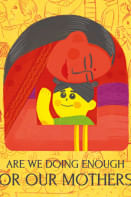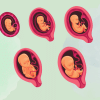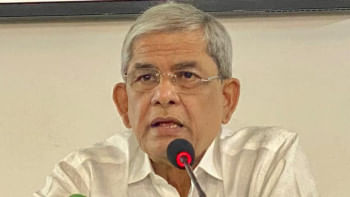The untold story of an unfinished journey to motherhood

Mother's Day comes with mixed baggage. On the one hand, mothers – who most likely have sacrificed years and years of their lives, career, and passion for raising their children in a sexist and thankless society where fathers were probably not emotionally or logistically available – get one special day when they can expect to hear words of appreciation from children and the community. On the other hand, a heavily corporatised Mother's Day romanticises the concept of motherhood in a society where motherhood is not always a choice for women. The worth of womanhood is often determined by whether a woman falls within a restrictive, narrow definition of motherhood and can give birth to a certain kind of biological offspring – most often an able-bodied, male baby. We do not appreciate mothers who are single, who are not in a heteronormative relationship and marriage, who are stepmothers, who are adoptive mothers, who have used egg/sperm/embryo donations, who have used surrogates to give birth to their babies, or who have rented their wombs in exchange of some much-needed financial resources.
It is, therefore, not surprising that society will forget about the journey to motherhood that does not experience a happy ending. I am talking about pregnancy loss, also known as miscarriage or spontaneous abortion, in English. We don't even have a Bangla word for this unique experience. "Gorbhopaat" is an umbrella term that is used for both miscarriages and abortions. The word "gorbhopaat" has a negative connotation, as if something, which was not supposed to fall, has fallen down ("paat" or "poton"). Similarly, the prefix "mis" in "miscarriage" indicates something that has happened inefficiently or wrongly.
At least one in four pregnancies ends in a miscarriage. To put things into perspective, 34,15,316 babies were born in Bangladesh in 2022, which means more than eleven lakh women experienced pregnancy loss last year! That is a huge number.
How many birth announcements or happy pregnancy photoshoots did you see on social media last year? Do you remember seeing any social media posts grieving the loss of a pregnancy? Where are the stories of the eleven lakh women?
It's not like we never grieve our personal losses with our community members. When we lose our parents, family members, friends, or coworkers, we share the news and usually get support from family and friends. We host social and/or religious events commemorating our time with our loved ones. The time we spend on grieving and the support we receive from the community help us process the loss and heal.
However, when women willingly decide to carry on a pregnancy and then lose it, they can rarely share the news and receive similar support. Pregnancy loss often comes with a sense of guilt that might be imposed by self or others. A sexist society would not stop for a second to blame women who have just suffered a tremendous loss. Remarks like, "you should not have eaten this," "you should not have traveled or gone to work," or "you should have started trying for a baby earlier", are some of the commonly heard remarks that are thrown at women who have just experienced a traumatic loss. Therefore, many women opt out of sharing their experiences outside their trusted circles. As a result, they don't receive the support they perhaps would have received if they had lost a family member.
The judgmental remarks women get after pregnancy loss may leave long-term dents. Women may experience a feeling of shame and lack of self-esteem, as if their bodies failed to do something that they were supposed to do. However, scientifically speaking, most early pregnancy losses happen due to chromosomal anomalies entirely out of the control of human beings. By default, the first mitotic division of human embryos is highly prone to errors.
We need to normalise talking about pregnancy losses. In popular media, we would often see someone have sex just once, and then they get pregnant, and the next thing you know is that they had a perfectly healthy, happy baby.
Pregnancy loss may create a sense of fear and confusion as women cannot figure out what exactly is wrong with their bodies or whether their bodies will ever be able to carry a healthy baby to the full term. Many women confine themselves within their homes or close circles to avoid facing insensitive remarks or getting triggered. As a result, they may suffer in isolation and experience a lack of meaningful human interactions needed to survive critical times.
Family and community members do not always play the most supportive roles. It is very common for married women to hear from elders and other family members, "when are you going to have a baby?" – as if having a baby should be the inevitable next step to getting married and as if the couples are obliged to provide some public explanation about their reproductive choices. Sometimes women remain under direct or indirect pressure from family members to have a baby. A pregnancy loss, therefore, just worsens their situation.
About 20 percent of women experiencing a pregnancy loss suffer from symptomatic depression and/or anxiety. The symptoms may linger for up to three years, impacting their everyday lives, conjugal and communal relationships, future pregnancies, and how they would raise kids in the future. This means more than two lakh women in Bangladesh suffered from chronic depression and/or anxiety due to pregnancy loss in 2022. Very few of them have access to much-needed therapy, medications, and appropriate mental health support.
The forgotten character in the scenario of a pregnancy loss is the male partner. Due to our problematic gender socialisation, men often don't learn how to express and process emotions. They don't cry, they don't grieve, and many of them may feel like they must stay stronger for their partners. This takes a heavy toll on their health and well-being. Studies have shown that men also suffer from anxiety, depression, despair, and difficulty in coping following a pregnancy loss.
What can we do to better support people who experience pregnancy loss?
We can try to be more sensitive about how we respond. There is no need to blame someone or remind them about what they might have done wrong, especially when they might already be blaming themselves for the pregnancy loss. Saying things like, "everything happens for a reason" or, "it must have happened for the best" does not really help with guilt. There is no need to remind that miscarriages are very common because that does not help with heartbreak. There is no need to say that their babies are in a better place because no mother would want their babies to die and go to a "better place."
The forgotten character in the scenario of a pregnancy loss is the male partner. Due to our problematic gender socialisation, men often don't learn how to express and process emotions. They don't cry, they don't grieve, and many of them may feel like they must stay stronger for their partners. This takes a heavy toll on their health and well-being. Studies have shown that men also suffer from anxiety, depression, despair, and difficulty in coping following a pregnancy loss.
There is no need to tell women that it was a good thing that the loss happened early in the pregnancy. It might have been just an embryo or a fetus – a very early stage of human development – and not a full-grown human baby who is able to survive on their own. Nevertheless, when someone decides to continue a pregnancy, that means they have already invested their time, emotion, and body in a long, demanding project. They have committed to suffering and experiencing extreme pain – willingly and with love. They have started to dream of a happy future. So, there is no need to disrespect this dream and tell them it was just a fetus with some chromosomal abnormality or disability.
Instead, we can try to provide a non-judgmental space to people who suffer pregnancy loss. We can check in with them, listen to their feelings, and ask what we can do for them. We can offer words of affirmation and affinity. We can specifically check in with the forgotten male partners and give them space to process their feelings.
We can also start to tell our stories. We need to normalise talking about pregnancy losses. In popular media, we would often see someone have sex just once, and then they get pregnant, and the next thing you know is that they had a perfectly healthy, happy baby. Real life can be very different from the media representation. We need diverse representation of difficult pregnancies, pregnancy losses, and fertility struggles for both women and men.
Bangladesh has a fantastic paid maternity leave provision, which is much more progressive than many powerful countries such as the United States. However, currently, we have no legislation addressing people who experience pregnancy loss. Countries such as Indonesia, Taiwan, Philippines, Mauritius, and India offer varying degrees of paid leave to women and/or their partners if they experience a pregnancy loss. Bangladesh needs to do better.
Most importantly, we need to stop romanticising motherhood. Motherhood is a choice. It is a beautiful and rewarding experience but can also cause pain, stress, and suffering. Motherhood is not the ultimate destiny of women. Therefore, a pregnancy loss or not being able to be a mother – albeit an extremely painful experience – should not define the worth of a woman.
Nafisa Tanjeem is an Associate Professor in the Department of Interdisciplinary Studies of Worcester State University, United States.


 For all latest news, follow The Daily Star's Google News channel.
For all latest news, follow The Daily Star's Google News channel. 










Comments